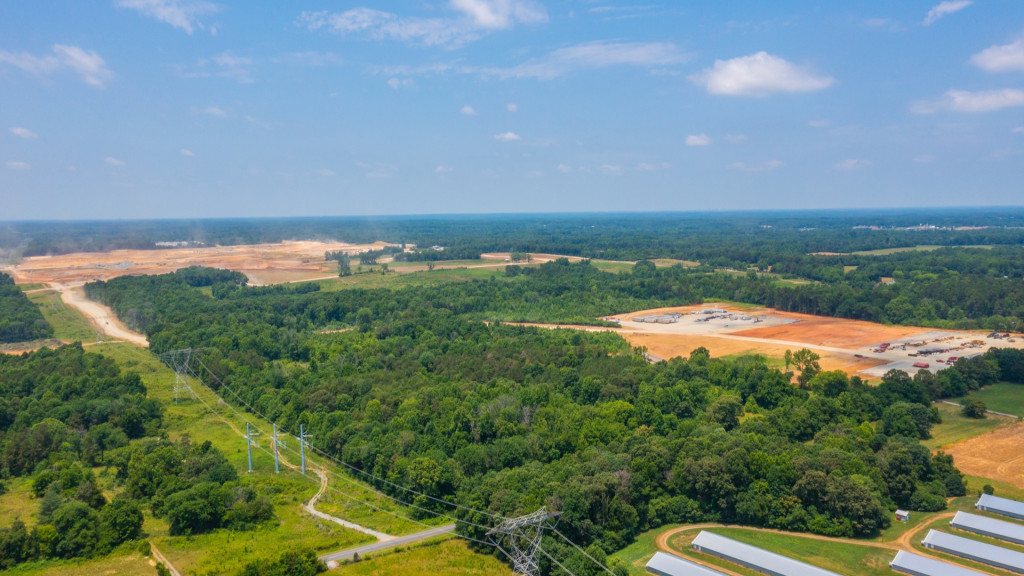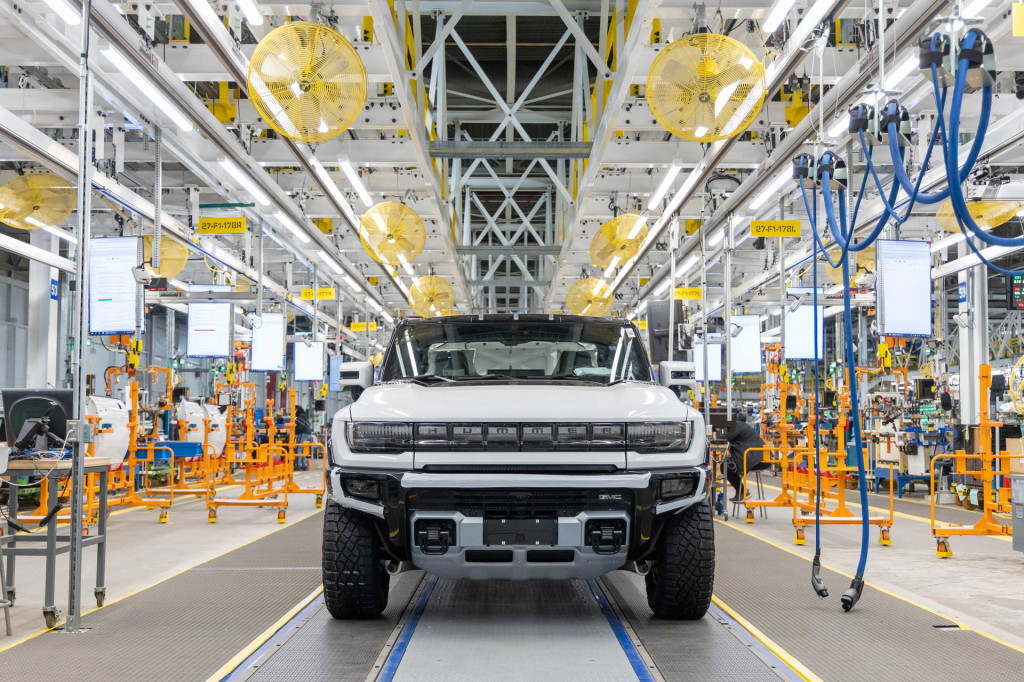The Biden administration may throttle back strict emissions rules in order to give automakers more time to ramp up EV sales, the New York Times reported earlier this week.
Last April, the EPA unveiled proposed tailpipe emissions rules for model years 2027 to 2032. The agency estimated at the time that this would lead to 67% EV sales by 2032, not because EV sales would be mandated, but because automakers would need to sell more EVs to meet emissions targets.
Increased EV sales and lower emissions are still the plan, but the Biden administration is considering tweaks that would "slow the pace at which auto manufacturers would need to comply," according to the report, citing multiple sources. The goal is reportedly to ramp up EV sales more gradually through the end of the decade, with a sharper increase from 2030 onward.

Site of planned Toyota Battery Manufacturing North Carolina (TBMNC) battery plant
The possible change is in response to automakers' wish to slow EV rollouts in order to allow more time to expand charging infrastructures, and labor unions' desire to have more time to unionize new EV-related factories, particularly in the South, according to the report.
The administration plans to finalize the rules by this spring. It will also have to finalize corresponding Corporate Average Fuel Economy (CAFE) standards from the National Highway Traffic Safety Administration (NHTSA) aimed for 43.5 mpg across the new-vehicle fleet by 2032.

2022 GMC Hummer EV pre-production at Factory Zero plant in Detroit, Michigan
One of the most controversial points is that CAFE rules would sharply reduce the "petroleum equivalency factor"—reworking the way regulators compare gasoline vehicles and EVs around the bulk of scientific information on the impact of EVs vs. ICE models. Based on the revised methodology, automakers would need to produce more than 35 EVs to get the same fleet boost, enabling gas-guzzling trucks, that they get for every 10 EVs now.
Automakers backed the tighter new rules in process, although now they face a lot of opposition—including growing opposition from a faction of U.S. dealers. A significant minority of U.S. dealerships last month sent a letter to the Biden administration, calling the EV shift "unrealistic."












